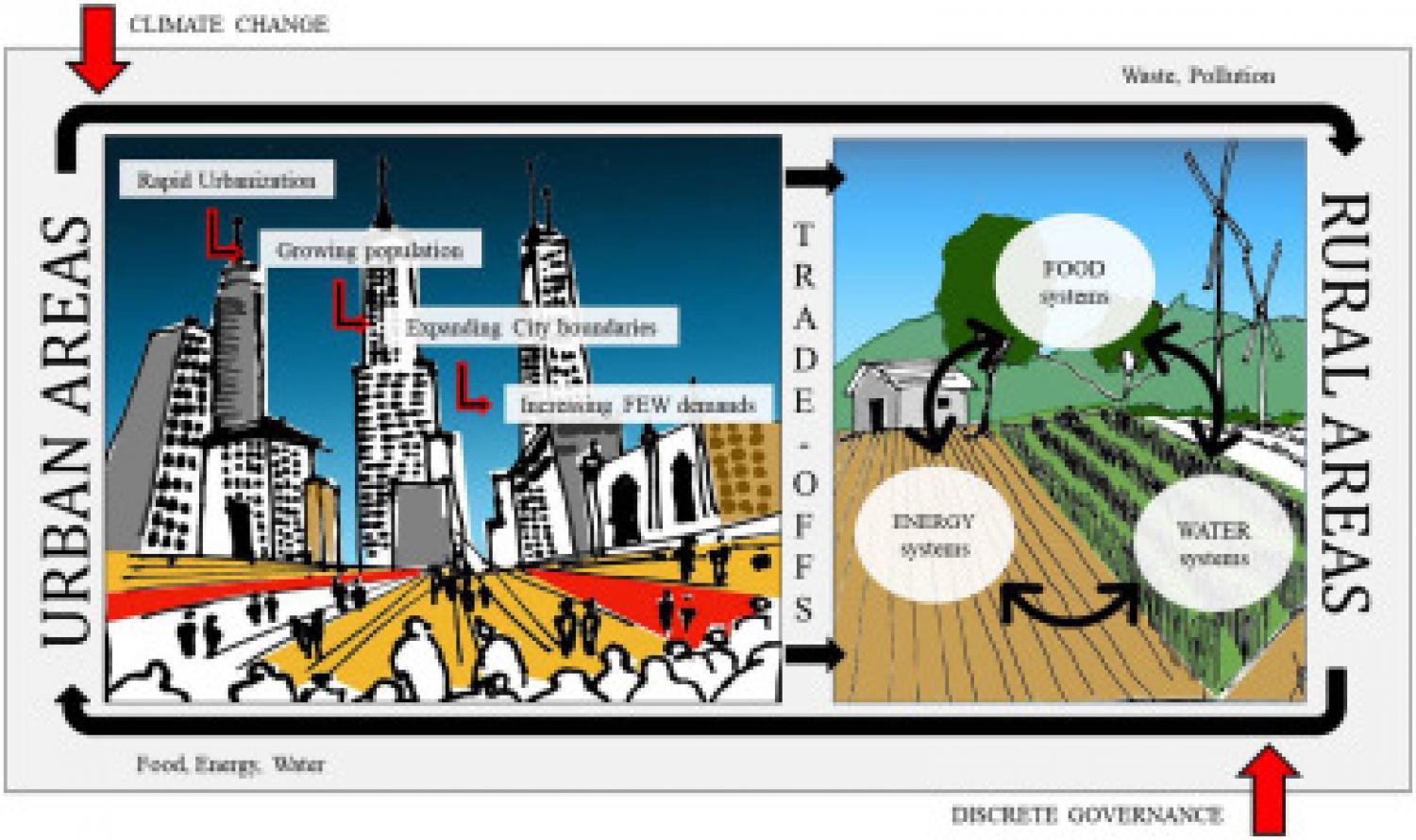
With developing concerns of climate change, population growth and rapid urbanization, there is growing need to optimize Food-Energy-Water (FEW) sectors. Subsequently, FEW nexus thinking has become a prerequisite for development planning today, as the three sectors are intricately linked to each other. This study identifies the key barriers to operationalizing FEW nexus at ground level and underlines the need for urban-rural shared perspectives in resource management. Since, urban and rural systems depend on shared stock of natural resources, the study theorizes that building integrated decision making platforms at regional level will significantly enhance their collective resilience to emerging socio-environmental challenges.
